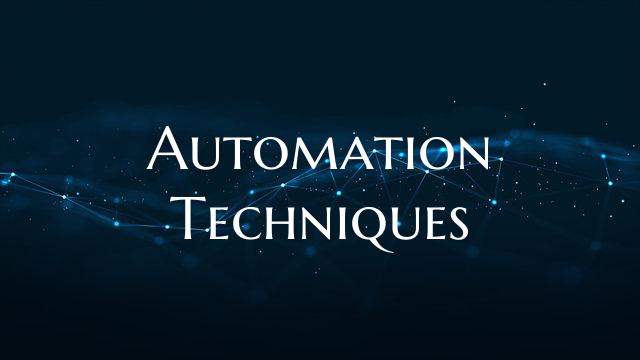Automation Techniques
In today's fast-paced world, automation techniques are revolutionizing industries, simplifying processes, and improving efficiency. From manufacturing to software development, automation plays a crucial role in enhancing productivity and reducing human intervention in repetitive tasks. Here are some key automation techniques that are shaping the future of various sectors:
1. Robotic Process Automation (RPA): RPA involves the use of software robots or 'bots' to automate repetitive and rule-based tasks. These bots can mimic human interactions with digital systems, allowing organizations to streamline their workflows and achieve higher accuracy and speed in executing tasks.
2. Machine Learning and Artificial Intelligence (AI): Machine learning algorithms and AI technologies enable systems to learn from data, identify patterns, and make decisions without explicit programming. This automation technique is being applied in various fields, such as healthcare, finance, and marketing, to optimize operations and provide personalized experiences.
3. Internet of Things (IoT) Integration: IoT devices interconnected through the internet can collect and exchange data to automate processes and improve overall efficiency. Automated systems in smart homes, cities, and industries leverage IoT technology to monitor and control various functions remotely.
4. DevOps Automation: DevOps practices emphasize collaboration between development and operations teams to deliver high-quality software faster. Automation tools in DevOps enable continuous integration, continuous delivery, and automated testing, ensuring rapid and reliable software development cycles.
5. Cloud Computing and Infrastructure as Code (IaC): Cloud-based services offer scalable resources and infrastructure on-demand, allowing organizations to automate provisioning, management, and maintenance of their IT systems. IaC further enhances automation by representing infrastructure configurations as code, enabling repeatable and consistent deployments.
6. Task and Workflow Automation: Automation tools like workflow management systems enable organizations to automate complex processes by defining sequences of tasks and setting rules for task execution. This streamlines operations, reduces errors, and improves overall productivity.
7. Chatbots and Virtual Assistants: Chatbots and virtual assistants powered by natural language processing and AI technologies automate customer interactions, support queries, and service requests. These automated solutions enhance customer experience by providing instant responses and 24/7 support.
In conclusion, automation techniques are reshaping the way businesses operate and deliver products and services. By leveraging innovative technologies such as RPA, AI, IoT, DevOps, cloud computing, and chatbots, organizations can drive efficiency, reduce costs, and stay competitive in today's dynamic market landscape. Embracing automation is essential for staying ahead in the digital age and unlocking new opportunities for growth and success.

